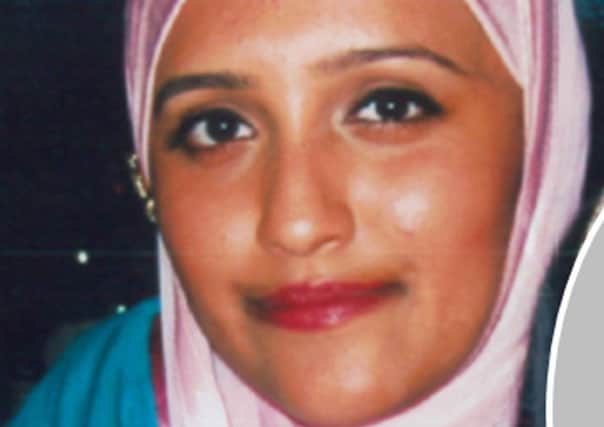Terrorist groups use sex abuse tactics to recruit


Nazir Afzal, who recently stepped down as chief Crown prosecutor for northwest England, said there were striking similarities in the way vulnerable young people are groomed for sex and acts of terrorism.
Afzal, who led the prosecution case in the Rochdale grooming trial, was speaking at an event in Glasgow last week organised by Roshni, a charity which works with Scotland’s ethnic minority communities, amid growing concerns about the number of young people attempting to leave the UK to join the terrorist group calling itself Islamic State.
Advertisement
Hide AdAdvertisement
Hide AdAt least two young Scots are know to have travelled to Syria: Aberdeen man Abdul Rakib Amin and Glasgow woman Aqsa Mahmood.
Afzal was joined at the event by Lord Advocate Frank Mulholland and Deputy Chief Constable Iain Livingstone to hear the concerns of young people first-hand. The former prosecutor, who led the case against nine men who ran a child sexual exploitation ring in Greater Manchester involving girls as young as 13, said the “process” was the same whether the young person was being groomed for sex or being radicalised.
“In the first stage, the child is manipulated,” he said. “A young person feels unwanted, unloved, misunderstood in some way and somebody comes along, either some charismatic person or online, and says ‘I want you’, ‘I understand you’. The young person thinks somebody is finally listening to them.
“Generally, these people know what buttons to press. Having manipulated them, the next stage is distancing, where they tell the young person not to trust anybody else – don’t trust your family, don’t trust your friends. The third stage is sexual abuse, or with radicalisation, it’s taking them away. The process is the same.”
Afzal said lessons learnt in dealing with the victims of child sexual abuse could be applied to radicalisation. But he said there was a need to act quickly in training professionals such as doctors and teachers to spot the danger signs.
“We’ve got a summer holiday coming up,” he said. “There were scares over Easter and some people went in the Easter break. There’s a danger some people will use the summer holiday to be taken. The only way to deal with that is to skill up everybody in a role where they have some responsibility so that they know what to do.”
Ali Khan, Roshni’s executive chair, said: “My view is that we do not have a forward-facing strategy. If young people are being referred to agencies such as us, we don’t know what the protocol is. At the moment, we’re hearing lots of stories, which is why we’re having the event. We would hope that one of the outcomes from the event is that we could set up some sort of system whereby young people will feel safe about having a conversation.